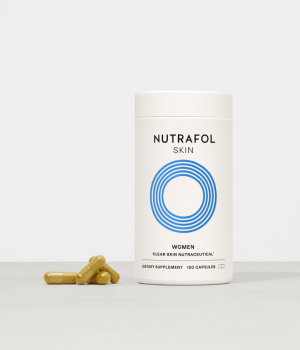LYCOPENE
TYPE OF INGREDIENT
Antioxidant, anti-inflammatory
COMMONLY FOUND IN
Natural foods (tomatoes, pink grapefruit, watermelon), nutritional supplements, serums
WHAT ARE THE BENEFITS OF LYCOPENE?
Lycopene is implicated in lowering ultraviolet light-induced erythema, arresting cancer progression and decreasing matrix metalloproteinase-1 activity. As a result, it has anticancer, anti-inflammatory and antioxidant properties. It has oxygen radical scavenger activity stronger than most carotenoids, which underscores its value for anti-aging products. It has been explored as a possible oral agent to prevent nonmelanoma skin cancer.
WHAT IS LYCOPENE?
Lycopene is a tetraterpene carotenoid that reduces singlet oxygen. It is typically seen in high levels in tomatoes and tomato products, pink grapefruit and watermelon.
IS LYCOPENE SAFE FOR ALL SKIN TYPES AND TONES?
Lycopene is safe for all skin types and tones based on available evidence. As a naturally occurring carotenoid, recommended daily allowances have not been established, so it may need to be used with caution.
CONTRAINDICATIONS
The available evidence does not show contraindications for lycopene. However, individuals with reactions to lycopene or products containing it should consider using these products with discretion.
Sources:
Ascenso A, Ribeiro H, Marques HC, Oliveira H, Santos C, Simões S. Chemoprevention of photocarcinogenesis by lycopene. Exp Dermatol. 2014;23(12):874-878.
Camp WL, Turnham JW, Athar M, Elmets CA. New agents for prevention of ultraviolet-induced nonmelanoma skin cancer. Semin Cutan Med Surg. 2011;30(1):6-13.
Imran M, Ghorat F, Ul-Haq I, et al. Lycopene as a Natural Antioxidant Used to Prevent Human Health Disorders. Antioxidants (Basel). 2020;9(8):706. Published 2020 Aug 4.
Souyoul SA, Saussy KP, Lupo MP. Nutraceuticals: A Review. Dermatol Ther (Heidelb). 2018;8(1):5-16.
Stahl W, Sies H. β-Carotene and other carotenoids in protection from sunlight. Am J Clin Nutr. 2012;96(5):1179S-84S.
Wawrzyniak D, Rolle K, Barciszewski J. Likopen – wpływ suplementacji na proces starzenia się skóry [Lycopene – the impact of supplementation on the skin aging process]. Postepy Biochem. 2023;69(1):47-53. Published 2023 Mar 29.






